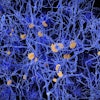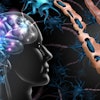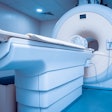Dear AuntMinnie Member,
CT lung cancer screening is more cost-effective if it's limited to high-risk individuals, according to a new study out of the Netherlands and Canada that we're featuring in our CT Community.
Researchers found that a screening program that was more restrictive -- such as requiring more years of smoking to qualify for the scans -- was more cost-effective than a program that had looser criteria. That should be no surprise. But in a twist, the group found that annual screening was more cost-effective than screening people every two years.
The study addresses the heart of the CT lung screening controversy, as debate rages about benefits versus harms, and even whether enough eligible smokers are undergoing screening. Read about the new study by clicking here, or visit the CT Community at ct.auntminnie.com.
Virtual training for RTs
Training for radiologic technologists (RTs, or radiographers, as they are known outside the U.S.) can be a hassle. Conventional training programs based on computer monitors just don't give technologists the experience of using the equipment they'll find in hospitals.
Enter Virtual Medical Coaching, a New Zealand-based firm that has developed software that puts technologists-in-training in a virtual x-ray room. They can interact with patients, manipulate images and equipment, and even get measurable feedback.
Find out how it works by clicking here, or visit our Advanced Visualization Community at av.auntminnie.com.
MRI firm capitalizes on football ties
The New England Patriots won the Super Bowl on Sunday with a stunning comeback victory over the Atlanta Falcons, and it didn't take long for an imaging services provider based in Massachusetts that works with the team to take advantage of the win. The day after the game, Shields Health Care Group aired a television ad that featured Patriots quarterback Tom Brady undergoing an MRI scan at the facility. Check out our story and the spot by clicking here.
While you're in our MRI Community, be sure to read this story on how researchers from New York City are using diffusion-tensor MRI to explore how heading a soccer ball can affect the human brain. These stories and more are available in our MRI Community at mri.auntminnie.com.


.fFmgij6Hin.png?auto=compress%2Cformat&fit=crop&h=100&q=70&w=100)





.fFmgij6Hin.png?auto=compress%2Cformat&fit=crop&h=167&q=70&w=250)











